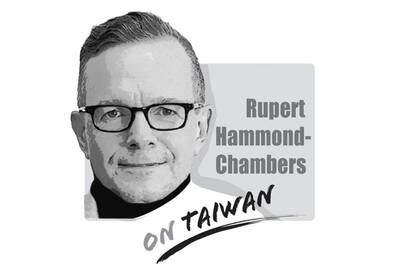A large portion of the shipment of melamine-contaminated milk powder recently imported into Taiwan has already been used to make bread, beverages and other products, making it very difficult for authorities to trace it. This has provoked a lot of anger among Taiwanese, as have China’s efforts to use the opportunity to belittle Taiwan’s sovereignty.
What’s even more worrying is that the milk powder incident may be only the tip of the iceberg. Consumers’ Foundation data showed Chinese products accounted for 307 cases, or 66.1 percent, of all cases of unsafe products detected in Taiwan between January and July, making China the No. 1 supplier of unsafe goods to Taiwan.
Considering the way Chinese businesses have been dumping products all over the world, it is hard to imagine that Taiwan was the only export destination for this tainted milk powder. Given the lack of transparency of information in China and Beijing’s attitude of putting national prestige and face-saving ahead of everything else, there is more than a slight possibility that the tainted milk powder has been exported to other countries.
Although the Chinese government received complaints about the milk as early as March and learned of its link to cases of kidney stones in infants in June, it was not until after the closing of the Olympic Games that the problem was made public and the defective milk powder recalled.
Compare this with 2005, when a batch of infant formula contaminated with helicobacter pylori was detected in France. Taiwan immediately received an alert from the International Food Safety Authorities Network (INFOSAN) — a WHO agency that handles global interchange on food safety information. INFOSAN clearly stipulates that all countries must report any occurrence of melamine-contaminated food. China, however, regards the current incident as a domestic matter and has not issued any international alert so far.
Until September 2006, Taiwan was in continuous direct contact with INFOSAN Director Joergen Schlundt. Then the WTO signed a memorandum of understanding with China stipulating that all WHO communications with Taiwan should be sent via China.
Since then, of the 232 health alerts issued by the WHO, China has passed on only 16 to Taiwan, often with a delay of several days and after the news had already appeared in the media.
In January, one of Taiwan’s diplomatic allies complained to the WHO about China’s delay in passing on to Taiwan an alert about contaminated baby corn from Thailand. The Chinese delegate arrogantly claimed that “China is a big country with a big population, so hitches in issuing alerts are bound to happen from time to time. We will be more careful about it in future.”
On the occasion of the current milk powder scandal, China is throwing its weight around even more by insisting on passing its warning via the semi-official Taiwan Affairs Office and Mainland Affairs Council instead of through official channels, with the clear purpose of downgrading the affair to a domestic issue.
China’s attitude is not just short-sighted — it seriously disrupts the global food safety warning system. Taiwanese health authorities should make work of the issue. Even though Taiwan is not a member of the WHO, it can highlight the contrasting attitudes of Taiwan and China with regard to international public health matters and counter China’s efforts to belittle Taiwan by reporting this affair to INFOSAN and other countries, speaking from the position of a sovereign state, and share its experience in dealing with such incidents.
Lin Shih-chia is the executive director of the Foundation of Medical Professionals Alliance in Taiwan.
TRANSLATED BY JULIAN CLEGG
Having lived through former British prime minister Boris Johnson’s tumultuous and scandal-ridden administration, the last place I had expected to come face-to-face with “Mr Brexit” was in a hotel ballroom in Taipei. Should I have been so surprised? Over the past few years, Taiwan has unfortunately become the destination of choice for washed-up Western politicians to turn up long after their political careers have ended, making grandiose speeches in exchange for extraordinarily large paychecks far exceeding the annual salary of all but the wealthiest of Taiwan’s business tycoons. Taiwan’s pursuit of bygone politicians with little to no influence in their home
In a recent essay, “How Taiwan Lost Trump,” a former adviser to US President Donald Trump, Christian Whiton, accuses Taiwan of diplomatic incompetence — claiming Taipei failed to reach out to Trump, botched trade negotiations and mishandled its defense posture. Whiton’s narrative overlooks a fundamental truth: Taiwan was never in a position to “win” Trump’s favor in the first place. The playing field was asymmetrical from the outset, dominated by a transactional US president on one side and the looming threat of Chinese coercion on the other. From the outset of his second term, which began in January, Trump reaffirmed his
It is difficult not to agree with a few points stated by Christian Whiton in his article, “How Taiwan Lost Trump,” and yet the main idea is flawed. I am a Polish journalist who considers Taiwan her second home. I am conservative, and I might disagree with some social changes being promoted in Taiwan right now, especially the push for progressiveness backed by leftists from the West — we need to clean up our mess before blaming the Taiwanese. However, I would never think that those issues should dominate the West’s judgement of Taiwan’s geopolitical importance. The question is not whether

In 2025, it is easy to believe that Taiwan has always played a central role in various assessments of global national interests. But that is a mistaken belief. Taiwan’s position in the world and the international support it presently enjoys are relatively new and remain highly vulnerable to challenges from China. In the early 2000s, the George W. Bush Administration had plans to elevate bilateral relations and to boost Taiwan’s defense. It designated Taiwan as a non-NATO ally, and in 2001 made available to Taiwan a significant package of arms to enhance the island’s defenses including the submarines it long sought.